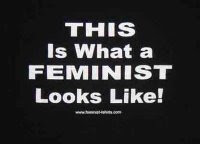
A Women's Bill of Rights
San Francisco shows how an international treaty can help in the fight for gender equality and why the U.S. government should sign on
By Justine Andronici
Ten years ago, when San Francisco's Public Works Department was asked to analyze the gender impact of its services, it responded that there was no gender impact. After all, everyone uses sidewalks and streetlights, not just women.
But after the analysis got under way, it quickly became clear that women were indeed affected differently than men by public works decisions. Here’s one simple example: Women are disproportionately impacted when street lighting is inadequate, as they’re more vulnerable to sexual assault. The analysis led to a decision to space streetlights closer together.
None of seven San Francisco departments that underwent this sort of gender analysis would have undertaken it without the passage in 1998 of the city’s version of CEDAW, the Convention on the Elimination of All Forms of Discrimination Against Women. CEDAW is the ultimate women’s bill of rights, with both global and local significance—and its time has come.
Once a nation signs on to CEDAW, it commits to examining and identifying gender discrimination in every possible arena—education, health care, legal rights, work, culture, governance— then taking concrete actions to overcome it, including ending violence against women. A U.N. committee evaluates the progress ratifying countries make in implementing the treaty. With the election of Barack Obama and Joe Biden, who have endorsed CEDAW (Biden, along with Sen. Barbara Boxer [D-Calif.], led efforts for Senate ratification), and more supporters of women’s rights in Congress, feminists are renewing the drive to ratify the CEDAW treaty.
This international agreement, adopted by the United Nations in 1979, was actually signed by President Jimmy Carter in 1980 just as he was leaving office, and referred to the Senate. During the succeeding presidential administrations of Reagan, Bush I, Clinton and Bush II, opponents—led by archconservative Jesse Helms, who chaired the Senate foreign relations committee—have prevented the full Senate from voting on the treaty, which requires a twothirds majority to be ratified.
To date, 185 countries—more than 90 percent of the members of the U.N. General Assembly—have signed on to CEDAW. The unsigned nations are Iran, Nauru, Palau, Qatar, Somalia, Sudan and Tonga—and one industrialized country, the United States.
Frustrated by lack of progress in signing onto CEDAW nationally, a coalition of feminist groups in San Francisco lobbied for the adoption of a model local version. Ten years later, CEDAW has begun to change the way things are done in the city. To start with, the city’s Commission on the Status of Women has been elevated to the status of a city department (acronym: DOSW). In the city’s juvenile justice system, CEDAW helped preserve programs for girls, including pregnancy prevention and parenting skills, during a round of budget cuts. In the city’s growing environment department, the gender and racial balance of employees is carefully monitored, which has led to outreach efforts and a rise in the number of women in nontraditional jobs. In the governance sphere, DOSW analyzed the gender composition of the city’s boards, task forces and commissions, which hopefully will lead to more women appointees on these key policy-making bodies.
“The idea of human rights under CEDAW is to account for differences,” says Emily Murase, executive director of DOSW. “This allows for the development of policy that is responsive to the realities of women’s lives.”
Perhaps the most promising area in which CEDAW can expand is the budgeting arena. In 2003, faced with imminent budget cuts, the city’s Board of Supervisors passed a resolution requesting that city departments examine the gender impact of proposed cuts. Last summer, DOSW began training personnel from the mayor’s budget office on how to apply a gender lens to their budgeting process for the upcoming fiscal year.
“When policy-makers have a better understanding of how the budget impacts men and women differently, they are better prepared to make good decisions about how to allocate their money,” says Ann Lehman, DOSW’s senior policy analyst. San Francisco does not yet have mandatory gender-responsive budgeting, but it’s well on the way to being the first U.S. city to adopt it.
The successful use of CEDAW in San Francisco’s public sector has even led to its application in the private sector. DOSW has partnered with 16 major businesses around the San Francisco Bay Area, including Internet giant Google, cable company Comcast and consulting firm Deloitte, to use CEDAW principles to advance gender equity in their workplaces. Seven key areas will be examined, including management, work-life balance and compensation.
The progress being made in San Francisco is reflected around the world in countries that are already implementing CEDAW. To name just a few: In Uganda, it has led to the establishment of state-funded programs and policies to help stop domestic violence; in India and Pakistan more girls are in school. In Germany, Guatemala, the Philippines, Poland, Portugal, Spain and the United Kingdom, working women now enjoy improved maternity leave and child care in accord with CEDAW provisions. In 22 countries, laws have been passed to increase women’s participation in government.
“As we purport to support the advancement of women’s rights in Afghanistan, Iraq and around the world, it is long past time for the U.S. to pass CEDAW,” says Eleanor Smeal, president of the Feminist Majority Foundation (publisher of Ms.). “We are gearing up for a major push.”
From our friends at MS.
For more info on CEDAW check out http://www.un.org/womenwatch/daw/cedaw/

















No comments:
Post a Comment